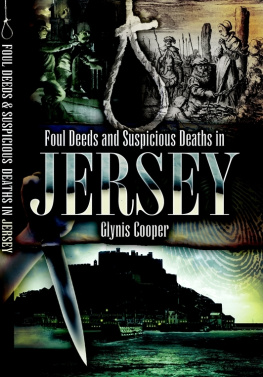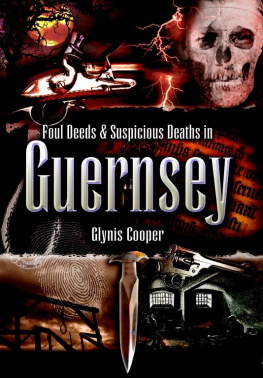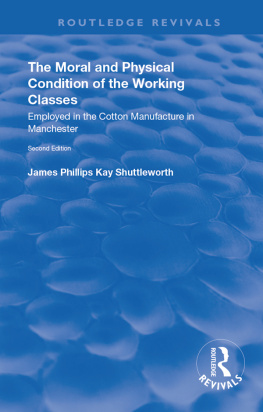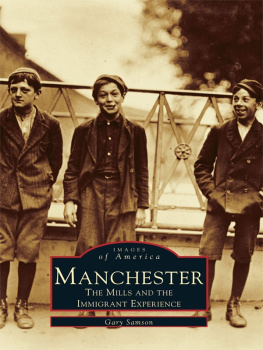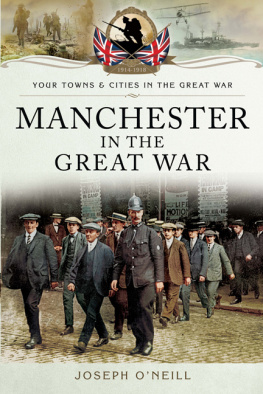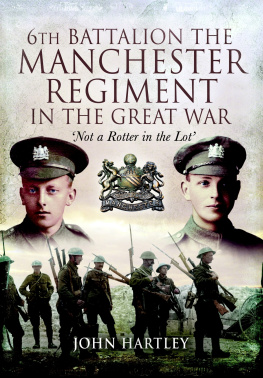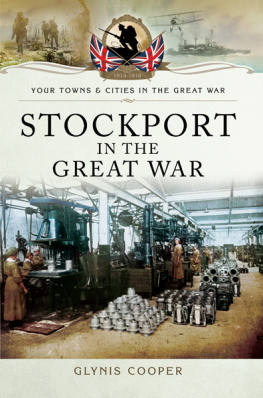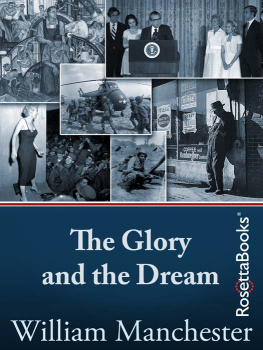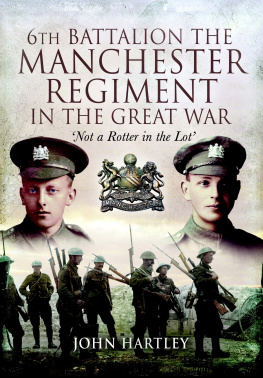Manchester at War 193945
Your Towns and Cities in World War Two
Manchester at War 193945
Glynis Cooper
First published in Great Britain in 2018 by
PEN & SWORD MILITARY
An imprint of
Pen & Sword Books Ltd
47 Church Street
Barnsley
South Yorkshire
S70 2AS
Copyright Glynis Cooper, 2018
ISBN 978-1-47387-575-3
eISBN 978-1-47387-577-7
Mobi ISBN 978-1-47387-576-0
The right of Glynis Cooper to be identified as the author of this work has been asserted by her in accordance with the Copyright, Designs and Patents Act 1988.
A CIP catalogue record for this book is available from the British Library.
All rights reserved. No part of this book may be reproduced or transmitted in any form or by any means, electronic or mechanical including photocopying, recording or by any information storage and retrieval system, without permission from the Publisher in writing.
Pen & Sword Books Ltd incorporates the imprints of Pen & Sword Archaeology,
Atlas, Aviation, Battleground, Discovery, Family History, History, Maritime,
Military, Naval, Politics, Railways, Select, Social History, Transport, True Crime,
and Claymore Press, Frontline Books, Leo Cooper, Praetorian Press,
Remember When, Seaforth Publishing and Wharncliffe.
For a complete list of Pen & Sword titles please contact
PEN & SWORD BOOKS LIMITED
47 Church Street, Barnsley, South Yorkshire, S70 2AS, England
E-mail:
Website: www.pen-and-sword.co.uk
Dedication
To my father, Edmund Cooper, and my mother, Joyce Plant, two Mancunians whose lives and destinies were shaped by the Second World War, and who were ultimately its victims as much as those killed in action; to all those Mancunians who suffered, fought and died in the war as well as those who gave so much on the Home Front; and to the City of Manchester, much of it reduced to smoking ruins by the German Blitz, which rose like a phoenix from its ashes to become the splendid, vibrant city it is today.
Acknowledgments
Many thanks to Manchester Central Library, the Imperial War Museum North, those who had living memory of the war and talked about what it was really like; my long-suffering family and friends, and the equally long-suffering editorial team at Pen & Sword; Roni Wilkinson who commissioned the book; and to my daughters and their curiosity about a war they never knew but which robbed them prematurely of their grandparents.
Introduction

Manchester at War 193945 deals with the City (centre) of Manchester and its thirty inner immediately surrounding suburbs. These include: Ancoats, Ardwick, Beswick, Blackley, Bradford, Burnage, Cheetham, Chorlton-cum-Hardy, Chorlton-on-Medlock, Clayton, Collyhurst, Crumpsall, Didsbury, Fallowfield, Gorton, Harpurhey, Hulme, Levenshulme, Longsight, Miles Platting, Moss Side, Moston, Newton Heath, Northenden, Openshaw, Rusholme, Victoria Park, Whalley Range, Withington and Wythenshawe. The outer suburbs of nine towns and the present Metropolitan Borough Councils (MBCs) include: Trafford, Salford, Wigan, Bolton, Bury, Rochdale, Oldham, Tameside and Stockport, which currently (2018) constitute Greater Manchester, but were then separate entities and consequently are not included in this book. Manchesters twin city, Salford, is not included either, although Salford had similar experiences, especially in the Blitz, and was bombarded with Nazi propaganda leaflets dropped from aircraft at the outbreak of the war. The boundary between the two cities is the River Irwell but Salford was, and still is, a very separate entity and has its own stories to tell. The Great War had cost Manchester dearly and it was hoped the years following its end would see Manchesters trade and industries recover, and consequently improve conditions for its citizens. Although its engineering industries made some recovery, Manchester was dealt a huge blow by the relentless decline of its cotton industry. America, India and Japan had been slowly buying up British cotton-manufacturing machinery and railway rolling stock since the 1880s and they had started their own cotton-manufacturing industries. This resulted in undercutting on prices, loss of trade, and when Japan started 24-hour working of their cotton mills in the early 1920s it meant that they could fulfil orders far more quickly and cheaply than the UK. In 1930 the Cotton Board established the practice of choosing annual cotton queens, young, attractive, vibrant, cotton workers to travel and promote the industry and its products. But it was too little, too late.

A Manchester childs Second World War identity card. All men, women and children were required to carry identity cards at all times during the War.
CHAPTER ONE
Background to the Renewed Outbreak of World War

This time the threat of war did not creep up on the nation almost unnoticed. The signs had been there since the end of the war to end all wars. Those returning from the Great War did not find the promised land fit for heroes but one of high unemployment, an acute housing shortage, food rationing and massive national debt. It provoked the inevitable backlash; first against women for taking mens jobs and, secondly, racial attacks on Jews and Belgian refugees for also stealing jobs; followed by anger at the practically bankrupt state of the country. Women, who had been the sole breadwinners, were thrown out of their jobs and replaced by men, leaving many with no means of supporting themselves. Any female resistance was often met by derision, sometimes a good beating, and, occasionally, rape. Women now had a stronger political voice since being given the vote in 1918, although this was still selective, but universal suffrage, that is the right to vote for all citizens in Britain aged 21 and over (the minimum voting age is now 18) except criminals and the insane, was granted in 1928. Mine and mill owners, desperate to retain their wealth, reduced workers wages to try and maintain the status quo. Many had lost money by investing in war loans and bonds during the Great War, attracted by the high returns, promises that of course the government could not meet. In 1925 the UK restored the Gold Standard which adversely affected exports due to extra levies and taxes. In turn this badly affected the mining industry whose workers had seen their wages reduced to almost half of their original level by mine owners desperate to retain profits. The General Strike of May 1926 was led by the miners but it received wide support from many other industries. Conditions did not improve, however, and then came the Wall Street Crash in the autumn of 1929. This had a knock-on effect on British banks and the UK withdrew from the Gold Standard in 1931. These events precipitated the Great Depression of the 1930s. Unemployment doubled and there was much poverty and widespread food shortages. The Jarrow Hunger March of 1936 took place when 200 men from the Tyneside town of Jarrow marched to London asking for re-establishment of industry in the town after the closure of its shipyard. They were led by Ellen Wilkinson, a Mancunian who at that time was MP for Jarrow, but who became Minister of Education just after the end of the war. In December of that year the new king, Edward VIII, abdicated to marry the woman he loved, an American lady already twice divorced. His younger brother, Bertie, the father of Queen Elizabeth II, ascended the throne as King George VI.


